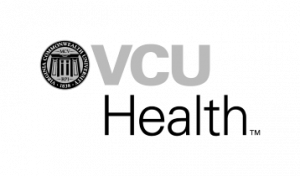Home

We are a clinical-stage life sciences company focused on the research and clinical development of anti-inflammatory and anti-fibrotic therapies for the treatment of heart disease.
Heart disease is a leading cause of death globally
We are dedicated to discovering novel therapeutic approaches that improve outcomes for patients suffering from underserved heart diseases.
Therapeutic Areas
Our focus is to understand how inflammation and fibrosis contribute to diseases of the heart and to develop therapies, now in clinical trials for rare cardiac conditions, to target these mechanisms and promote healing.
A debilitating syndrome caused by inflammation of the thin fluid-filled sac surrounding the heart (the pericardium) characterized by sharp and stabbing chest pain, shortness of breath, and fatigue, resulting in physical limitations, reduced quality of life, emergency department visits, and hospitalizations.
Learn MoreA debilitating syndrome caused by inflammation of the thin fluid-filled sac surrounding the heart (the pericardium) and is characterized by sharp and stabbing chest pain, shortness of breath, and fatigue, resulting in physical limitations, reduced quality of life, emergency department visits, and hospitalizations.
Learn MoreAn acute inflammatory disorder of the heart muscle (the myocardium) resulting in chest pain, impaired heart function, and heart rhythm irregularities, and is a leading cause of sudden cardiac death in people under 35 years of age.
Learn MoreAn acute inflammatory disorder of the heart muscle (the myocardium) resulting in chest pain, impaired heart function, and heart rhythm irregularities, and is a leading cause of sudden cardiac death in people under 35 years of age.
Learn MoreA chronic, progressive syndrome in which the heart muscle is unable to pump enough blood to meet the body’s needs for blood and oxygen; symptoms include shortness of breath, rapid heart rate, and edema, resulting in reduced exercise capacity, limitations undertaking simple daily activities, and frequent hospitalizations.
Learn MoreDiastolic heart failure, also referred to as heart failure with preserved ejection fraction (HFpEF), occurs when the heart loses its ability to relax normally (because the myocardium has become fibrotic and stiff) and cannot properly fill with blood during the resting period between each beat.
Learn MoreSystolic heart failure, also referred to as heart failure with reduced ejection fraction (HFrEF), occurs when the heart loses its ability to contract normally and is unable to pump with sufficient force to push enough blood into circulation.
Learn MoreStolina Qirjazi, a 33-year-old woman from Cleveland, Ohio, describes living with chronic recurrent pericarditis for over a decade and the limitations this condition has imposed on her life, “Be positive. Keep going. Everyday there is hope. Never give up. Never, never.”
October 2, 2023Rachel Freeburg, a resilient woman from Salem, Oregon, shares her story of battling the physical, mental, and financial hurdles of recurrent pericarditis for seven years: “I couldn’t even laugh because I was so exhausted; it rips you apart.”
September 6, 2023Alexa Ritchie, 25, has spent the better part of a decade in a constant battle against a rare and debilitating illness that would change the course of her life forever: “It became routine that every couple of months I was down for 7 to 10 days.”
May 30, 2023Nicole Janes, the mother of 14-year-old Cruze Janes, shares their story of the profound impact of his myocarditis diagnosis: “It started on a Sunday and by Friday he needed to be admitted to the hospital for decreased cardiac function.”
May 9, 2023Five years ago, Newell Rand, aged 23, was diagnosed with chronic myopericarditis after a series of incorrect diagnoses: “The biggest motivation for me is being able to inspire others.”
April 17, 2023Seth S. Martin, Aaron W. Aday, Zaid I. Almarzooq, et al. Circulation. 2024;149:e347–e913
January 24, 2024Martinez Naya N, Kelly J, Corna G, et al. Molecules. 2024;29(2):473.
January 18, 2024Lozano O et al. Heart Failure Society of America Annual Scientific Meeting 2023: ePoster Viewing Session III.
October 7, 2023Martinez Naya N, Kelly J, Corna G, et al. Molecules. 2023;28(16):5980.
September 8, 2023Key International Research and Clinical Collaborators
We collaborate with world-class researchers and clinicians at international centers of excellence and leverage their expertise in drug development, experimental execution, inflammation and fibrosis, the treatment of cardiovascular diseases, and clinical trial protocol design. Our collaborations provide the optimal advice and knowledge platform as we pursue our purpose: heal the heart with innovative science.





